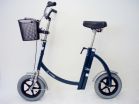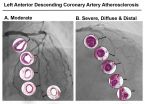(Press-News.org) Drinking alcohol while pregnant is common, ranging from 20% to 80% among those questioned in the UK, Ireland, Australia and New Zealand, reveals a study of almost 18,000 women published in the online journal BMJ Open.
Women across all social strata drank during pregnancy, the findings showed. But expectant mums were significantly more likely to be drinkers if they were also smokers.
The researchers base their findings on an analysis of data from three studies: The Growing up in Ireland (GUI) study; the Screening for Pregnancy Endpoints (SCOPE) study; and the Pregnancy Risk Assessment Monitoring System (PRAMS).
The studies variously assessed the amount and type of alcohol drunk before and during pregnancy and involved 17,244 women who delivered live babies in the UK, Ireland, Australia and New Zealand.
The researchers mined the content to gauge the prevalence of, and the factors associated with, drinking alcohol during pregnancy.
Their analysis indicated a high prevalence of drinking, including binge drinking, among mums to be. The prevalence of drinking alcohol ranged from 20% to 80% in Ireland, and from 40% to 80% in the UK, Australia, and New Zealand.
Ireland emerged as the country with the highest rates of drinking, both before (90%) and during (82%) pregnancy, and of binge drinking, before (59%) and during (45%) pregnancy, based on estimates from the SCOPE study. But the exact prevalence could be far lower than that as estimates of drinking during pregnancy from the PRAMS and GUI studies were substantially lower (20-46%), with only 3% of women reporting binge drinking in PRAMS, caution the researchers.
The amount of alcohol drunk varied across the three studies. Between 15% and 70% of the women said that they had drunk 1-2 units a week during the first three months (trimester) of their pregnancy. But the number of reported units dropped substantially in all countries between the first and second trimester, as did binge drinking.
The findings indicated that the prevalence of drinking while pregnant was generally evident across all social strata, but several factors were associated with a heightened or lowered risk of alcohol consumption.
Compared with white women, those of other ethnicities were less likely to drink alcohol while pregnant, while younger women (30-39) were also less likely to do so than older women.
A higher level of education, having other children, and being overweight/obese were also associated with a lower risk of drinking while pregnant.
But the strongest and most consistent predictor of a heightened risk of drinking alcohol during pregnancy across all three studies was smoking. Smokers were 17-50% more likely to drink while pregnant.
The researchers point out that most clinical and government guidelines advise women to stop drinking during pregnancy.
But they write: "Alcohol use during pregnancy is highly prevalent, and evidence from this cross-cohort and cross-country comparison shows that gestational alcohol exposure may occur in over 75% of pregnancies in the UK and Ireland."
However, most of these women consumed alcohol at very low levels and the number of pregnant women who drank heavily in the three studies was small, they say.Nevertheless, given that the risks of light drinking are not fully known, the most sensible option is not to drink alcohol during pregnancy, they add.
"Since most women who consume alcohol do so at lower levels where the offspring growth and development effects are less well understood [than at higher levels], the widespread consumption of even low levels of alcohol during pregnancy is a significant public health concern," they conclude.
INFORMATION:
The heightened risk of death after admission to hospital at the weekend--the so-called 'weekend effect'--is a feature of several developed countries' healthcare systems, and not just a problem for hospitals in England, reveals research published online in BMJ Quality & Safety.
The international nature of the findings suggests that this is a systematic phenomenon that not only crosses time, but also space, say the researchers.
In a bid to look in more detail at the evidence for the link between higher rates of death for patients admitted to hospital at weekends compared ...
A new smartphone app warns drinkers if they go over the recommended maximum daily/weekly units of alcohol, to help them better manage their intake, reveals a commentary published in the online journal BMJ Innovations.
The Alcohol Tracker, which has been developed by doctors and based on the clinical evidence of what works best, also provides built-in psychological therapies and helpline links for users to help steer them away from hazardous drinking.
Excess alcohol kills millions worldwide every year, but many available smartphone apps to manage drinking are not informed ...
1. For patients with no history of stroke, even very small brain lesions increase risk for death
Free abstract: http://www.annals.org/article.aspx?doi=10.7326/M14-2057
URL goes live when embargo lifts
For asymptomatic patients with no history of clinical stroke, having even very small brain lesions (less than 3 mm) detected by magnetic resonance imaging (MRI) triples their risk for stroke and death, according to a study published in Annals of Internal Medicine. Having both very small and larger lesions increases the risk to eight-fold.
Subclinical brain infarctions ...
Scientists with the University of Mississippi Medical Center (UMMC) and colleagues found that very small brain lesions noted on brain imaging that would typically be disregarded by clinicians are associated with a heightened risk of stroke and death. The findings are in today's (July 7, 2015) Annals of Internal Medicine.
The discovery about these tiny lesions -- areas of the brain where tissue may have been damaged by injury or disease -- may help physicians identify people at risk of stroke and death as early as middle age, even when they are displaying no symptoms of ...
A study in the online edition of Annals of Internal Medicine suggests that coronary artery calcification (CAC) scans could help physicians identify patients at risk for premature death.
According to the National Institutes of Health, a CAC is an x-ray test that looks for specks of calcium in the walls of the coronary arteries. These specks of calcium are called calcifications and are an early sign of coronary artery disease.
Researchers from Emory University School of Medicine, led by Leslee Shaw, PhD, professor of cardiology, collected and assessed CAC scores and ...
In a first-of-its-kind study, researchers have investigated the impact of different walking aids on patients with chronic obstructive disease (COPD).
Walking with the help of a rollator (a frame with wheels, handlebars, and a built-in seat) resulted in the longest distance walked and most time spent walking. The use of walking with assistance of a draisine (a bicycle without pedals) improved walking speed with fewer strides but did not improve the time spent walking by COPD patients to cover a longer distance. "Patients with COPD walked significantly further and longer ...
In a study of 1159 males who illicitly used amphetamines, half of participants said drug use had no impact on their sexual functions, while the other half reported impacts such as reduced erectile rigidity and sexual satisfaction, enhanced orgasmic intensity, and delayed ejaculation.
"Compared with 211 matched controls, amphetamine users were twice as likely to experience erectile dysfunction," said Dr. Bang-Ping Jiann, senior author of The Journal of Sexual Medicine study.
Amphetamines are a group of drugs that stimulate the central nervous system and contain ingredients ...
Researchers have long had reason to hope that blocking the flow of calcium into the mitochondria of heart and brain cells could be one way to prevent damage caused by heart attacks and strokes. But in a study of mice engineered to lack a key calcium channel in their heart cells, Johns Hopkins scientists appear to have cast a shadow of doubt on that theory. A report on their study is published online this week in Proceedings of the National Academy of Sciences.
"We confirmed that this calcium channel is important for heart function," says senior investigator Mark Anderson, ...
July 6, 2015 CHAPEL HILL, NC - Insulin resistance affects tens of millions of Americans and is a big risk factor for heart disease. Yet, some people with the condition never develop heart disease, while some experience moderate coronary blockages. Others, though, get severe atherosclerosis - multiple blockages and deterioration of coronary arteries characterized by thick, hard, plaque-ridden arterial walls. Researchers at the UNC School of Medicine created a first-of-its-kind animal model to pinpoint two biomarkers that are elevated in the most severe form of coronary disease.
The ...
Researchers have found several key differences among people who receive hospice care--which maintains or improves the quality of life for someone whose condition is unlikely to be cured--in assisted-living facilities (ALFs) compared with people who receive hospice care at home.
People receiving hospice care in ALFs were more likely to be older and female than people who received hospice care at home. Also, people living in ALFs enrolled in hospice care much earlier than patients living in home settings. This allowed them to receive more help from the hospice team before ...

